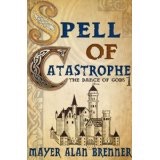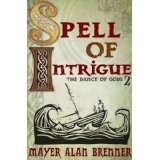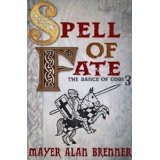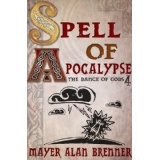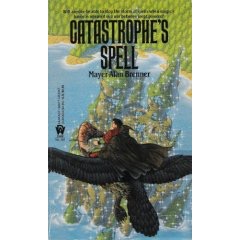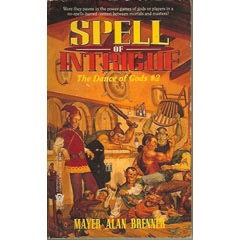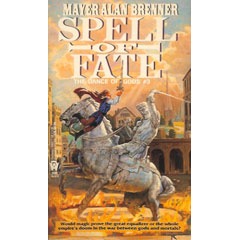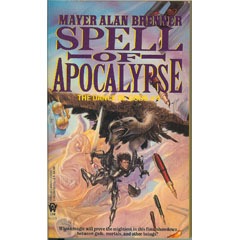Although I've alluded to it before in these notes, this chapter includes one of the most explicit references to the philosophy behind the multiple overlapping plotlines. We have this:
As usual, Shaa thought sardonically, it looks like I've wandered into somebody else's ongoing plot.
The events in these books are so packed with activity that they clearly defy credulity, even given the fact that we're talking about adventures in a fantastic setting to start out with. By splitting the the activities among a group of characters, each one has to do less in order to advance the story. Along with this, when one character is off the scene, is engaged in a less interesting task, or perhaps is even catching a quick nap, another character can keep things moving along. (Which is to say that none of these characters is Jack Bauer, staying up twenty-four hours a day, in frenetic motion, being bashed and tortured on a regular basis.) But it also seems reasonable that these individually well-cast plans keep running afoul of each other, with consequences that spin wildly out of control.
This idea didn't originate with me, of course. One of the first places I recall seeing this idea made concrete, though, was in a Marvel comic, circa 1965 (although I didn't encounter it until, I'd guess, 1973 or so). In Stan Lee's Soapbox column that ran across all of that month's titles, he was discussing the joy and flexibility of having a large menagerie of characters existing in the same world, and indeed in New York City; you'd never know, for example, while reading a Fantastic Four, when you might glimpse the Hulk in a street scene at the other end of an alley off on his own business. You might think that an encounter between the Hulk and the Thing is unexpectedly imminent, and indeed it might be ... or on the other hand it might not. Minor crossovers and mega crossovers and not-quite-crossovers have become more and more common over the last few years in all forms of entertainment, so the attraction is definitely not limited to me.
One of the reviews of one of the Spells, perhaps in Locus, actually did compare the density of plotting to a Marvel comic. But in a good way.
